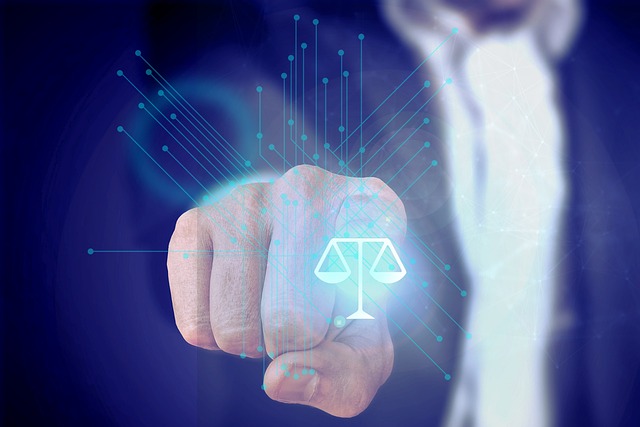Litigation Support Services play a pivotal role in complex criminal trials, focusing on advanced Criminal Trial Jury Selection Strategies. Using data analytics and databases, these services identify impartial jurors who can delicately process intricate legal nuances. This strategic approach optimizes legal representation and improves the chances of favorable verdicts, especially in white-collar crimes. In the digital era, technology like AI and virtual platforms enhances this process, ensuring fair trials and streamlining litigation support for high-stakes cases.
“Uncover the transformative power of Litigation Support Services, a vital aspect of modern legal practice. This comprehensive guide delves into the intricate world of legal support, focusing on criminal trial jury selection strategies. From understanding the foundational role of these services to exploring technology’s impact, we dissect effective case management techniques. Learn how strategic jury selection enhances outcome success in criminal trials, providing valuable insights for legal professionals navigating complex litigation.”
- Understanding Litigation Support Services: A Comprehensive Overview
- The Role of Criminal Trial Jury Selection in Legal Proceedings
- Strategies for Effective Jury Selection: Enhancing Case Outcomes
- Technology's Impact on Modern Litigation Support and Jury Selection Processes
Understanding Litigation Support Services: A Comprehensive Overview
Litigation Support Services play a pivotal role in shaping the outcomes of legal proceedings, especially in complex cases that often make their way to jury trials across the country. These services encompass a wide range of activities designed to assist attorneys in preparing for and navigating criminal trials with efficiency and precision. From expert witness management to sophisticated data analysis, these comprehensive solutions are tailored to optimize every aspect of legal representation.
The heart of effective litigation support lies in strategic jury selection strategies, which are crucial for achieving extraordinary results in court. By employing advanced analytical tools and leveraging vast databases, professionals in this field help identify potential jurors who possess the right balance of qualities necessary for fair and impartial deliberation. This meticulous approach ensures that attorneys can present their cases to a jury composed of individuals most likely to understand and appreciate the nuances of the matter at hand, ultimately enhancing the chances of a favorable verdict.
The Role of Criminal Trial Jury Selection in Legal Proceedings
The Criminal Trial Jury Selection process is a critical component of legal proceedings, shaping the outcome of cases involving general criminal defense or complex white-collar and economic crimes. This strategic phase involves meticulously screening potential jurors to ensure an impartial and representative panel for the trial. Juror selection strategies focus on understanding the impact of personal biases, experiences, and perceptions that might influence their decisions.
Effective Criminal Trial Jury Selection Strategies require attorneys to delve into detailed questioning during voir dire, aiming to uncover hidden prejudices related to race, gender, age, or prior legal experiences. By carefully evaluating potential jurors’ responses, lawyers can either accept them as unbiased or challenge them for cause, ensuring a fair trial for both the prosecution and the defense in white-collar defense cases.
Strategies for Effective Jury Selection: Enhancing Case Outcomes
In the realm of criminal trials, effective jury selection strategies are instrumental in enhancing case outcomes, particularly for challenging defense verdicts. The process involves a meticulous balance between ensuring a fair and impartial jury while also selecting individuals who align with the client’s legal objectives. Attorneys play a pivotal role in this phase by employing sophisticated techniques to screen potential jurors, delving into their backgrounds, experiences, and biases. This strategic approach allows for the identification of hidden prejudices or preconceptions that could influence their decisions, thereby facilitating informed decision-making throughout the trial.
By understanding the nuances of criminal trial jury selection strategies, legal professionals can navigate complex cases, such as white-collar and economic crimes, across the country with greater confidence. These strategies not only strengthen the defense’s position but also foster a more robust and just judicial process, ultimately contributing to winning challenging defense verdicts.
Technology's Impact on Modern Litigation Support and Jury Selection Processes
In today’s digital era, technology has revolutionized both litigation support services and jury selection processes in criminal trials. Advanced tools like data analytics and artificial intelligence are now instrumental in sifting through vast amounts of information to identify relevant evidence, patterns, and potential biases that might influence a case. For instance, algorithms can analyze previous court cases and media coverage to predict potential jurors’ tendencies, enabling lawyers to employ more effective Criminal Trial Jury Selection Strategies. This ensures fair trials by helping attorneys make informed decisions regarding the composition of juries in both high-stakes cases and those involving white collar and economic crimes.
Furthermore, virtual platforms have made jury selection more accessible and efficient. Remote participation in jury selection processes through videoconferencing reduces travel costs and time while maintaining transparency and inclusivity. This is particularly beneficial for complex white collar defense scenarios where a diverse pool of jurors is essential to ensuring impartiality. The ability to streamline these procedures using technology not only enhances the effectiveness of litigation support services but also contributes to the overall fairness and efficiency of legal proceedings in high-stakes cases.
Litigation Support Services play a pivotal role in modern legal proceedings, with technology enhancing every step from understanding complex cases to jury selection. As seen through crucial components like criminal trial jury selection strategies, the process has evolved significantly. By leveraging advanced tools and techniques, legal professionals can now navigate intricate legal landscapes more efficiently. This not only improves case outcomes but also ensures a more robust and fair judicial system. The future of litigation support promises further innovation, revolutionizing how we approach and resolve legal disputes.






